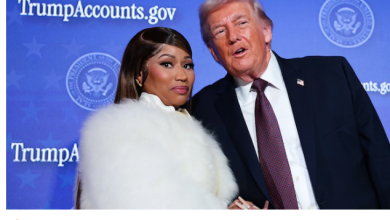Foreign
U.S. Federal Court blocks Trump’s sweeping tariffs in legal blow to trade policy

A U.S. Federal Court has blocked most of Donald Trump’s sweeping tariffs from going into effect, dealing a significant blow to his trade policy.
The court’s decision came after businesses and a coalition of state governments argued that Trump overstepped his authority by imposing tariffs without congressional approval.
Trump had announced import duties on most trading partners on April 2, 2025, citing a “national emergency” due to trade deficits and the threat posed by the influx of drugs.
”However, the three-judge Court of International Trade ruled that Trump’s actions were unlawful, stating that the International Emergency Economic Powers Act of 1977 doesn’t grant the president unlimited tariff authority.
“The court does not read IEEPA to confer such unbounded authority and sets aside the challenged tariffs imposed thereunder,” the court wrote in an unsigned opinion.
The ruling also quashed duties imposed on Canada, Mexico, and China separately using emergency powers.
The White House swiftly appealed the decision, with Trump’s spokesman Kush Desai saying, “President Trump pledged to put America first, and the administration is committed to using every lever of executive power to address this crisis and restore American greatness.”
Desai added that “unelected judges” have no right to weigh in on Trump’s handling of the issue. ”
Stephen Miller, a White House deputy chief of staff, took to social media to decry a “judicial coup” that he said was “out of control.”
In contrast, Gregory W. Meeks, the top Democrat on the House Foreign Affairs Committee, welcomed the ruling, stating that “these tariffs are an illegal abuse of executive power. ”
“The court’s decision is a significant setback for Trump’s trade policy, and it remains to be seen how this will impact his ability to negotiate trade deals,” said former US trade official Wendy Cutler.
The ruling led to a rally in Asian markets, while European and U.S. futures pointed to early gains. Japan’s tariffs envoy Ryosei Akazawa said Tokyo would study the ruling, particularly given the tariffs on cars.
Analysts warn that the cost of the tariffs would likely be passed on to U.S. consumers, raising inflation and potentially leading the U.S. central bank to hold interest rates higher for longer.
The court’s decision gives the White House 10 days to complete the bureaucratic process of halting the tariffs.



